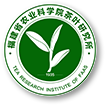Abstract:
This study aimed to determine the effect of potassium(K)fertilization on the nutrient absorption of tea plants. Vegetative propagated 10-month-old seedlings of the tea
Camellia sinensis (L.) O. Kuntze cv.
Ruixiang grown in pots were treated three times weekly for 24 weeks with the nutrient solution containing 0, 100, 200, 600 or 2,000 μmol K·L
-1. The contents of Ca, Cu, Zn, Mn and Mg in the roots, stems and leaves of the tea plants were measured. The results showed that the K fertilization altered the nutrient absorption and distribution of the plants. When K was not supplied, the Ca and Mn contents in the leaves were higher than the other two parts, the Mg, Cu and Zn contents in the roots were highest. With the K fertilization, the regression analysis indicated that Ca in the leaves or the stems negatively correlated to the fertilization, and positively correlated in the roots. Whereas, the fertilization positively correlated to the Cu and Zn contents in the roots, but negatively correlated in the stems or the leaves, and, negatively correlated to the Mn and Mg in all parts.




 下载:
下载: